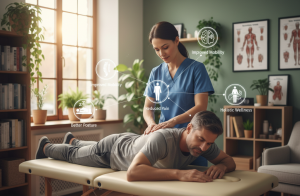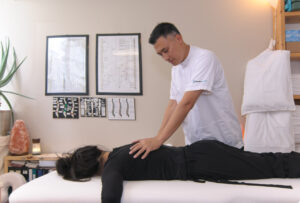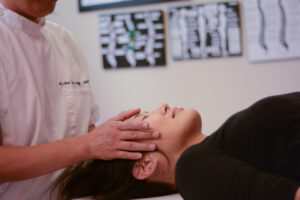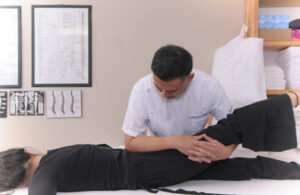Holistic treatment is more than a method; it’s a philosophy. It embraces the whole person, not just symptoms. This approach integrates mind, body, and spirit, aiming for harmony and balance.
In today’s fast-paced world, stress and imbalance are common. Holistic treatment offers a path to restore equilibrium. It encourages self-awareness and self-care, empowering individuals to take charge of their health.
Holistic health is not a new concept. It has roots in ancient healing traditions. These practices have evolved, blending with modern techniques to offer comprehensive care.
The essence of holistic medicine is prevention. It focuses on maintaining health rather than just treating illness. This proactive approach can lead to long-term well-being.
Holistic medicine treatments are diverse. They include therapies like acupuncture, massage, and meditation. Each therapy aims to support the body’s natural healing processes.
Holistic healing is about addressing root causes. It seeks to understand the underlying factors affecting health. This can lead to more effective and lasting solutions.
Holistic care is personalized. It considers the unique circumstances of each person. This tailored approach can enhance the effectiveness of treatment.
Holistic healthcare is collaborative. It often involves a team of practitioners working together. This integrative approach can provide comprehensive support.
The holistic approach encourages lifestyle changes. These changes support health and prevent disease. They can include diet, exercise, and stress management.
Holistic therapy can enhance mental clarity and emotional resilience. It supports physical vitality and overall well-being. These benefits can improve quality of life.
Naturalistic healing is a key component of holistic treatment. It uses natural remedies and therapies. This approach aligns with the body’s natural rhythms.
Holistic health treatments are adaptable. They can be tailored to meet individual goals. This flexibility makes them accessible to many people.
Holistic health focus is on balance. It seeks harmony in all aspects of life. This balance is essential for optimal health.
Embracing holistic treatment can lead to a more fulfilling life. It offers a path to well-being that is both comprehensive and compassionate.
What Is Holistic Treatment? Defining the Holistic Approach
Holistic treatment is a comprehensive approach to health. It focuses on the interconnectedness of mind, body, and spirit. This method believes each aspect of an individual affects overall well-being.
In holistic medicine, the goal is not merely symptom relief. Instead, it seeks to address root causes of health issues. This approach may prevent problems before they start, promoting long-term wellness.
Holistic health involves understanding the patient as a whole. Physical, emotional, and spiritual health are all significant. By considering every aspect, practitioners provide more personalized and effective care.
Various therapies fall under holistic medicine. These include both conventional and alternative treatments. A combination of practices often delivers the best results for patients.
A core principle of holistic care is prevention. It emphasizes healthy lifestyle choices. Nutrition, exercise, and stress management are key elements in this process.
There are several principles guiding holistic medicine. Here are a few:
- Treat the person, not just the symptoms.
- Balance mind, body, and spirit.
- Emphasize prevention and maintenance.
- Encourage personal responsibility for health.
Holistic medicine is adaptable. It can be tailored to meet individual needs. This adaptability provides options suitable for diverse backgrounds and preferences.
Is a holistic doctor a real doctor? Yes, they hold professional credentials. Many have additional training in alternative therapies.
Practitioners of holistic care often collaborate. They might work with nutritionists, physical therapists, and mental health professionals. This team approach enhances care quality and patient outcomes.
Embracing a holistic approach can lead to a more balanced life. It empowers individuals, promoting self-awareness and self-care. This proactive stance can improve both physical and mental health in lasting ways.
The Foundations of Holistic Health: Mind, Body, and Spirit
Holistic health is grounded in the integration of mind, body, and spirit. This triad forms the cornerstone of wellness, guiding therapies and practices.
The mind plays a crucial role in health. Emotional and mental states can influence physical well-being. Stress, anxiety, and positivity all impact the body and spirit.
In holistic health, the body is not viewed in isolation. It is a vessel interconnected with thoughts and emotions. Physical care must consider this relationship to promote healing.
Spirit extends beyond religious context; it refers to inner peace and purpose. A sense of fulfillment and connection can significantly affect health outcomes.
Understanding this triad leads to more meaningful health practices. Addressing only one aspect might leave underlying issues unresolved. True wellness arises from nurturing all three.
A vital benefit of this holistic perspective is resilience. By building a harmonious connection between mind, body, and spirit, individuals are better equipped to handle life’s challenges.
Many holistic practices aim to balance these elements:
- Mindfulness and meditation improve mental clarity.
- Yoga and tai chi promote physical strength and spiritual awareness.
- Journaling and counseling support emotional expression and healing.
These practices illustrate how holistic health approaches are diverse and adaptable. They emphasize self-care and proactive health management.
Holistic health seeks equilibrium among mind, body, and spirit, fostering comprehensive well-being. This foundation empowers individuals on their health journeys, enhancing quality of life.
Holistic Health vs. Conventional Medicine: Key Differences
Holistic health and conventional medicine offer distinct paths to wellness. Each has unique strengths, yet they differ in their core philosophies.
Conventional medicine often focuses on diagnosing and treating symptoms or diseases directly. Its approach is typically reactive, aiming to address existing health issues swiftly.
In contrast, holistic health emphasizes prevention and integration. It considers the whole person, nurturing the mind, body, and spirit before problems arise.
Holistic practitioners view each individual uniquely. They tailor treatments to fit personal needs rather than applying one-size-fits-all solutions.
While conventional doctors rely heavily on pharmaceuticals and surgery, holistic care often embraces non-invasive methods. These may include therapies such as acupuncture or herbal remedies.
Collaboration is key in holistic healthcare, where practitioners from various disciplines work together. This integrative approach can complement traditional medical treatments effectively.
Both approaches have their merits and can work in tandem. Patients can benefit from the acute care of conventional medicine and the preventive focus of holistic therapies.
Key differences include:
- Diagnosis and Treatment: Conventional medicine targets specific symptoms, while holistic health considers broader causes and lifestyle factors.
- Focus: Holistic health aims for balance and prevention, whereas conventional medicine often reacts to ailments.
- Treatment Methods: Holistic approaches include natural remedies and therapies, whereas conventional methods may prioritize medication and surgical interventions.
Understanding these differences can guide individuals in making informed choices about their healthcare pathways.

The Role of Holistic Medicine Doctors: Training, Credentials, and Care
Holistic medicine doctors play a vital role in modern healthcare. They are dedicated to understanding the full spectrum of human health.
These professionals undergo extensive training, learning about both conventional and alternative methods. This dual knowledge allows them to integrate diverse therapies effectively.
To become a holistic doctor, one must first achieve credentials in traditional medical fields. This foundation provides a deep understanding of the body’s systems and diseases.
Subsequently, they pursue specialized training in holistic practices. This includes learning about nutrition, acupuncture, and mind-body therapies.
Holistic doctors are often part of professional organizations that uphold ethical and educational standards. Their commitment to continuous learning ensures they offer the best care.
The care holistic doctors provide is patient-centered. They spend time getting to know each person, considering lifestyle, emotional well-being, and mental health.
Holistic medicine doctors treat each patient as an individual. They focus on creating tailored wellness plans that address unique needs and goals.
Key elements of holistic doctor care include:
- Listening and Communication: Spending time understanding patient concerns and history.
- Comprehensive Assessments: Considering emotional, mental, and spiritual health along with physical symptoms.
- Personalized Treatment Plans: Integrating various therapies to support overall well-being.
- Preventive Focus: Encouraging lifestyle changes to prevent illness and promote long-term health.
By fostering this integrative approach, holistic medicine doctors can empower patients to take control of their health journeys.
Core Principles of Holistic Care
Holistic care is grounded in principles that emphasize the interconnection of mind, body, and spirit. These principles guide the approach to healing and well-being.
One of the main principles is comprehensive assessment. Unlike conventional practices focusing on symptoms, holistic care looks at the whole person.
Holistic practitioners believe in prevention as a pathway to health. By making lifestyle changes, individuals can maintain wellness and reduce disease risk.
Another core principle is patient empowerment. Individuals are encouraged to play an active role in their health journey.
Collaboration is also essential in holistic care. Practitioners often work alongside other healthcare providers, ensuring a well-rounded approach.
This care model values individualized treatment. Each person is unique, and holistic care adapts to meet those personal needs.
Emotional and spiritual well-being holds equal importance to physical health in holistic care. It aims to create balance and harmony in a person’s life.
Key principles of holistic care include:
- Focus on the whole person, not just symptoms
- Integration of conventional and alternative therapies
- Customized care tailored to individual needs
- Emphasis on prevention and proactive health measures
- Collaboration among healthcare providers
- Promotion of self-care and personal responsibility
By embracing these principles, holistic care supports a profound sense of well-being. This approach not only addresses health concerns but also fosters a more fulfilling life.
Types of Holistic Medicine Treatments and Therapies
Holistic medicine embraces a diverse array of treatments and therapies. Each is designed to support the body’s innate healing abilities. These approaches integrate both modern and traditional methods to promote comprehensive well-being.
Mind-body therapies are a popular choice among holistic treatments. They emphasize the connection between mental and physical health. Techniques like meditation and yoga enhance mindfulness and reduce stress.
Manual and physical therapies also play a crucial role in holistic health. Practices such as massage and acupuncture aim to alleviate physical discomfort. They work by addressing musculoskeletal imbalances and improving circulation.
Energy and spiritual therapies delve into the subtle energy fields. These include techniques like Reiki and sound healing. These practices aim to harmonize the body’s energies for optimal well-being.
Nutrition, herbal medicine, and lifestyle choices are central to naturalistic healing. This approach values the power of food and herbs in healing. It also emphasizes the importance of healthy lifestyle habits.
Mind-Body Therapies: Meditation, Yoga, and Mindfulness
Mind-body therapies form a vital component of holistic treatment. They focus on calming the mind and enhancing self-awareness.
Meditation involves sitting quietly and focusing on breath. This practice helps reduce stress and increase clarity. It fosters a sense of inner peace and balance.
Yoga combines physical postures with breath control and meditation. It improves flexibility, strength, and mental focus. Yoga is beneficial for both physical health and emotional resilience.
Mindfulness encourages living in the present moment. It involves paying attention to experiences without judgment. This practice boosts mental clarity and stress management.
Key benefits of mind-body therapies include:
- Enhanced mental clarity and emotional well-being
- Improved stress management and resilience
- Increased physical flexibility and strength
Mind-body therapies are accessible and adaptable. They can fit into any lifestyle, offering significant health benefits.

Manual and Physical Therapies: Massage, Acupuncture, and Bodywork
Manual therapies focus on the body’s structure. They promote healing through hands-on techniques and subtle adjustments.
Massage therapy uses tactile pressure to relax muscles. It alleviates tension and improves circulation. Regular sessions can enhance physical and mental relaxation.
Acupuncture involves inserting thin needles into specific points. It is based on traditional Chinese medicine principles. This technique aims to rebalance the body’s energy flow.
Bodywork encompasses techniques like chiropractic adjustments. It targets the musculoskeletal system to relieve pain. Bodywork improves posture and physical function.
Benefits of manual therapies include:
- Relief from physical tension and stress
- Improved posture and bodily alignment
- Enhanced circulation and energy flow
These therapies are effective for injury recovery and pain management. They provide relief without invasive procedures.
Energy and Spiritual Therapies: Reiki, Sound Healing, and More
Energy therapies are based on the idea that life force energy flows through us. Maintaining this flow is vital for health.
Reiki is a Japanese technique that involves energy channeling. Practitioners use their hands to direct healing energy. It helps relieve stress and promote relaxation.
Sound healing uses vibrational frequencies to harmonize the body. Instruments like singing bowls or tuning forks are common. These vibrations help restore equilibrium in the body’s energy fields.
Other energy therapies include crystal healing and qigong. They work by balancing energy and supporting spiritual growth.
Benefits of energy and spiritual therapies include:
- Enhanced energy flow and balance
- Improved relaxation and stress reduction
- Deeper spiritual awareness and connection
These therapies can complement other holistic treatments. They offer profound support for both emotional and spiritual health.

Naturalistic Healing: Nutrition, Herbal Medicine, and Lifestyle
Naturalistic healing emphasizes the body’s natural ability to heal. It focuses on nutrition, herbal medicine, and healthy living.
Nutrition involves consuming foods that nourish the body. A balanced diet supports energy levels and immune function. Whole foods provide essential nutrients for healing.
Herbal medicine uses plants for their medicinal properties. Herbs can treat various ailments and boost wellness. This practice respects traditional wisdom and modern science.
Lifestyle choices play a crucial role in holistic health. Regular exercise and adequate sleep are foundational. Stress management and healthy relationships enhance well-being.
Key elements of naturalistic healing include:
- Balanced nutrition for physical vitality
- Herbs as natural remedies for health
- Lifestyle habits that support holistic well-being
This approach encourages self-care and informed choices. It empowers individuals to take control of their health journey.

Holistic Health in Practice: Real-World Applications
Applying holistic health practices in daily life can enhance well-being. These applications vary depending on individual needs and life circumstances. Let’s explore how holistic treatments can be integrated into everyday routines.
Corporate executives often grapple with stress and burnout. Holistic approaches can offer balance and resilience. Techniques like mindfulness and yoga address mental clarity and emotional stress.
Fitness instructors need robust recovery and injury prevention strategies. Holistic therapies such as massage and acupuncture can complement their fitness regimens. These therapies facilitate muscle recovery and flexibility.
Teachers face unique challenges in maintaining emotional resilience. Holistic practices like meditation and energy healing can nurture sustainable energy. They help maintain an attentive and caring classroom environment.
Holistic therapies can be tailored to suit specific lifestyles and goals. Whether for stress management, physical recovery, or emotional support, these practices provide versatile benefits.
Key holistic practices in daily life include:
- Regular mindfulness activities for stress management
- Massage and bodywork for physical recovery
- Energy therapies for emotional balance
These strategies empower individuals to take an active role in their health journey. They support a healthier, more balanced lifestyle.

For Corporate Executives: Stress, Burnout, and Work-Life Balance
Corporate roles demand a great deal of mental energy. It’s easy to feel overwhelmed by the pressure. Holistic practices can offer effective solutions for stress and burnout.
Mindfulness meditation is a simple yet powerful tool. It helps executives center themselves amidst chaos. Taking a few mindful minutes each day can significantly reduce stress.
Yoga is equally beneficial. It combines breath control with physical postures. This practice fosters mental clarity and physical relaxation after long work hours.
Creating balance is crucial. Holistic tips for executives include:
- Incorporate short meditation breaks during the day
- Practice yoga poses to unwind after work
- Prioritize work-life boundaries with mindful scheduling
These actions can help executives achieve better well-being. They support a harmonious integration of personal and professional lives.

For Fitness Instructors: Recovery, Injury Prevention, and Peak Performance
Fitness instructors exert their bodies daily. As a result, recovery and injury prevention are vital. Holistic health practices can support these needs effectively.
Massage therapy is an excellent choice for instructors. It aids muscle recovery and reduces tension. Regular massages can also boost overall performance.
Incorporating acupuncture can be beneficial too. This technique addresses specific aches and supports energy flow. It’s useful for maintaining peak physical condition.
Holistic strategies for fitness instructors include:
- Schedule regular massages to enhance muscle recovery
- Integrate acupuncture for joint and muscle health
- Adopt mindfulness techniques to optimize mental focus
These practices enhance performance and support physical well-being. They allow instructors to maintain their energy and vitality.

For Teachers: Emotional Resilience and Sustainable Energy
Teachers invest emotionally in their classrooms. This often leads to energy drain. Holistic health can provide much-needed support for resilience and vitality.
Meditation is a powerful practice for teachers. Even brief sessions can foster calm and focus. Meditation also aids in emotional resilience during challenging days.
Energy therapies, like Reiki, provide additional emotional support. They help teachers maintain a balanced and nurturing presence.
Key holistic practices for teachers involve:
- Regular meditation to manage classroom stress
- Reiki sessions to enhance emotional balance
- Focus on balanced nutrition for sustained energy
These holistic strategies can make a marked difference. They support teachers in nurturing both themselves and their students.
How to Choose a Holistic Practitioner: What to Look For
Choosing the right holistic practitioner is a significant step in your wellness journey. Not all practitioners are alike, so knowing what to look for is essential.
First, consider their qualifications and training. Holistic practitioners should have relevant certifications and licenses. These ensure they’re recognized and knowledgeable.
Next, assess their experience and areas of specialization. Different practitioners may focus on unique holistic therapies. Ensure their expertise aligns with your wellness goals.
Communication style is also important. A good practitioner should listen well and address your concerns. They should encourage an open dialogue to understand your needs fully.
Personal comfort is another key factor. You should feel at ease during consultations. A practitioner who creates a supportive environment can enhance your healing experience.
Convenience can also impact your choice. Consider the location and availability of the practitioner. A nearby practice may be more suitable for regular visits.
Lastly, recommendations and reviews can be insightful. Look for feedback from other clients. It can provide a better idea of what to expect.
When selecting a practitioner, consider:
- Credentials and certifications
- Experience and specialties
- Communication and comfort level
- Location and accessibility
- Client testimonials and reviews
These factors will guide you to a suitable holistic practitioner. They ensure you receive care that resonates with your health journey.

Integrating Holistic Health into Your Daily Life
Incorporating holistic health practices into your daily life can nurture a deeper sense of well-being. It doesn’t require a complete lifestyle overhaul; rather, it’s about making mindful choices.
Start by creating a morning routine that sets a positive tone for the day. This could include a few minutes of meditation or deep breathing. Such practices can awaken the mind and body gently.
Physical activity is another essential component. Choose exercises that you enjoy, like yoga or walking. Consistency is more important than intensity when it comes to holistic health.
Nutrition plays a pivotal role too. Opt for whole, unprocessed foods to fuel your body. Incorporating a variety of fruits, vegetables, and whole grains supports holistic nourishment.
Mindfulness can enhance everyday experiences. Practice being present in your daily tasks. This simple shift can reduce stress and increase satisfaction in day-to-day activities.
Taking time for reflection and gratitude can also enrich your holistic practice. Keeping a journal to note things you’re grateful for can uplift your spirit.
Consider environmental factors. Creating a peaceful and clutter-free space at home can support your holistic journey, promoting calm and creativity.
Incorporate these practices into your routine:
- Start with mindful mornings
- Engage in regular physical activity
- Choose nourishing foods
- Practice mindfulness daily
- Reflect and express gratitude
- Create a peaceful environment
Embarking on this journey can transform your outlook, fostering resilience and harmony. These steps can lead to profound, positive changes in your well-being.
Addressing Common Questions and Misconceptions
Holistic health, while increasingly popular, can sometimes be misunderstood. This section addresses common questions and corrects misconceptions that may arise.
One frequent question is about the legitimacy of holistic practitioners. Yes, holistic doctors are real doctors. They have comprehensive training and credentials, just like conventional doctors.
Many people wonder if holistic treatments can replace conventional medical care. Holistic practices are not a substitute but can complement traditional medical treatments.
Another misconception is that holistic care involves only spiritual practices. In reality, holistic care considers mind, body, and spirit as an integrated whole, ensuring balanced well-being.
The notion that holistic approaches are expensive is also prevalent. While some treatments may incur costs, many holistic practices such as mindfulness and yoga can be practiced inexpensively.
There’s also confusion about the term “holistic drug.” This refers to natural supplements rather than pharmaceutical medications, used to support health.
Critics sometimes claim that holistic approaches lack scientific backing. However, many holistic therapies are supported by research, and ongoing studies continue to validate their efficacy.
To clarify these points, consider this overview:
- Holistic doctors are legitimate
- Holistic practices complement, not replace, conventional care
- Includes mind, body, spirit components
- Many accessible and affordable options
- Holistic drugs refer to natural supplements
- Supported by scientific research
Understanding these facets can help dispel myths and promote informed decisions about holistic health. When exploring these options, an open mind can provide new pathways to wellness.
The Future of Holistic Healthcare: Trends and Innovations
Holistic healthcare is evolving rapidly. New trends and innovations are shaping its future and accessibility.
One significant trend is the integration of technology. Digital platforms facilitate remote consultations, providing wider access to holistic practitioners.
Holistic care is also seeing advancements in personalized treatments. Innovations in genetic testing allow for tailored wellness plans based on individual health profiles.
Public interest in mental health is driving more focus on holistic mental wellness strategies. Therapies such as meditation and mindfulness are increasingly used in both individual and corporate settings.
The emphasis on sustainability continues to grow. There is a trend towards environmentally friendly practices in holistic treatments, such as using organic materials in therapies.
Emerging trends include:
- Telehealth for holistic consultations
- Personalized wellness plans via genetic insights
- Expanded mental wellness practices
- Environmental consciousness in treatment approaches
These trends indicate a dynamic future for holistic healthcare. As innovations continue, they offer promising avenues for accessible and effective wellness solutions.
Conclusion: Embracing the Holistic Path to Well-Being
Choosing a holistic approach to health is about nurturing every part of who you are. It encourages you to see well-being as a seamless blend of mind, body, and spirit.
Adopting holistic practices empowers you to be proactive in your health journey. This method supports a balanced lifestyle, fostering resilience and sustainable vitality.
As you embrace this path, you open up to a diverse array of treatments and healing techniques. Each offering unique benefits, these treatments together create a customized approach to wellness.
Incorporating holistic principles into your daily life can transform your overall well-being. It provides a meaningful framework to achieve harmony, clarity, and a vibrant life.












